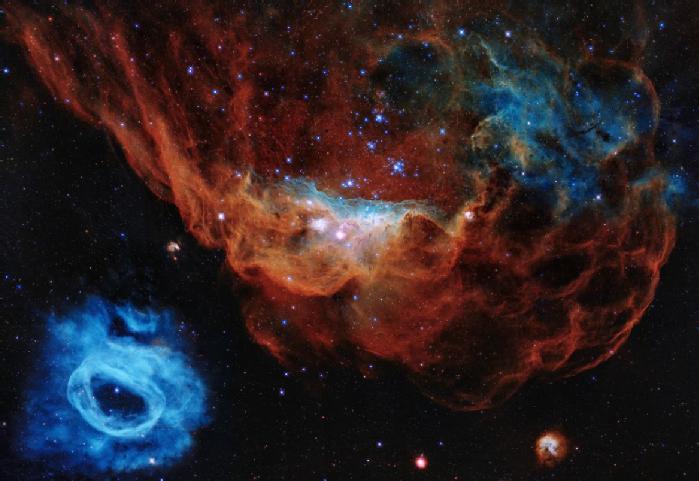Hubble Turns Thirty
On April 24th, 1990, the Hubble Space Telescope was launched onboard the space shuttle Discovery, and was deployed a day later into an orbit that takes it around the Earth once every 96 minutes. Located above the Earth's blurred atmosphere, Hubble has been taking countless stunningly beautiful pictures of planets, stars and galaxies that have kept us breathlessly admiring the beauty of space for the past three decades.
For this special occasion, Hubble took a new mind-blowing image showing the intricate details of a vast star-forming region in the Large Magellanic Cloud, a small satellite galaxy that is orbiting the Milky Way at a distance of 163000 light years, and only visible from the southern hemisphere (read the full details here).
And Hubble is a beautiful example of what human kind can achieve when working together. It's history has not been without trouble, but five astronaut missions have maintained the telescope in perfect shape so it can keep pushing the boundaries of our knowledge.
Here in Warwick, we love Hubble. Our group is among Europe’s most active Hubble users. We have had the privilege to use Hubble's unparalleled capabilities for seventy different research projects, studying planets, stars and galaxies. We take particular pride in the fact that our graduate students are already Hubble enthusiasts, and many of them have been leading their own observing programs.
A few examples of the science we have done using Hubble include the study of the first two merging neutron stars to be detected as gravitational waves rippling through space-time, planets that are evaporated by their host stars, discovering the first white dwarf pulsar, and measuring the chemical composition of exo-asteroids that crash into the burnt-out cores of their host stars.
Using Hubble is an awe-inspiring experience. You know that right now, the telescope is slewing silently, some 545km above you. Staring at the spec of sky that you asked it to observe. Gathering the data that will help you to find answers to the questions that you were puzzling - sometimes for years - about.
We were planning to celebrate today with with a big birthday party for Hubble, with plenty of activities for the young ones, cake and drinks, and lots of exciting stories about Hubble's history and achievements. Let's all do what we can to get safe through the current crisis, and hopefully we will catch up together with celebrations later this year.

